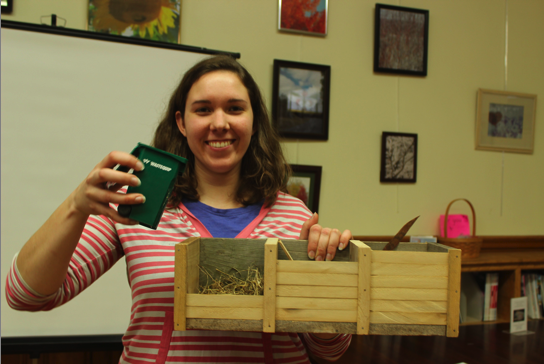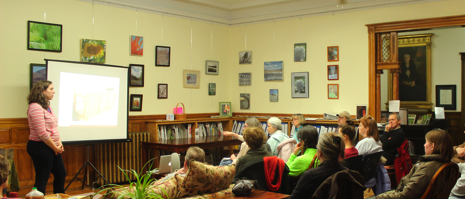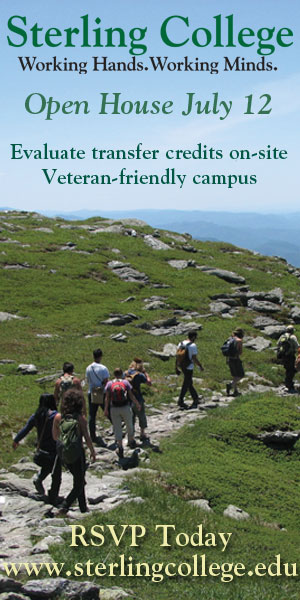DERBY LINE — According to Act 148, Vermont’s Universal Recycling Law, by July 2016, leaf, yard, and clean wood debris will be banned from landfills. By 2020, food scraps will be banned from the landfill.
On Saturday, The Haskell Free Library hosted “Rot On! An Extreme Home Composting Workshop.”
The workshop was led by Maia Hansen, who works with Highfields Center for Composting. Highfields, based out of Hardwick, has been touring the state giving this lecture as part of a USDA grant the group received. Saturday’s stop at the Haskell was the last in the series, however, there is still one more free webinar on March 27.
A group of around 30 attendees from both sides of the border learned the ins and outs of developing a home composting system. Home composting is not only a great way to get ready for the Universal Recycling Laws that are coming, it will benefit your garden and your overall well being.
According to Hansen, the improvement to the soil that composting provides is only one of the reasons to take part in the practice.
“Composting is a great way to incorporate natural processes into our daily lives,” Hansen said.

M. vaccae, a living creature that resides in your backyard compost pile, acts like a mind-altering drug once it enters the human body, functioning like antidepressant pills to boost your mood.
The lecture on Saturday focused on the different methods of composting, from traditional backyard bins, to more advanced rotating drums. Worm composting systems, or vermiculture, was also discussed.
The message from Hansen was to find a system that works for you. This may include collecting your food scraps and taking them to a processing center, or giving them to your neighbor who composts. The key point is to keep as much as possible from ending up in the landfill.
“We need to get our food scraps out of the landfill,” Hansen said. “We can use those nutrients and harvest them to grow more food.”
Highfields Center for Composting has a wealth of information on the subject at their website. The information they provide will get anyone who is interested up and running in no time.
Below is a video that the group put out.


